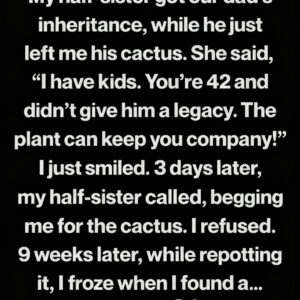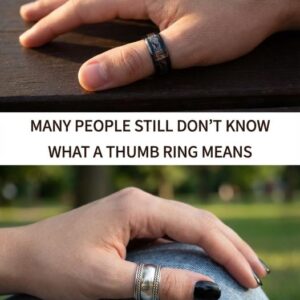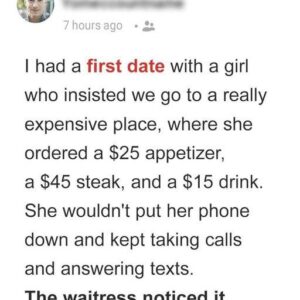It was a cold Wednesday afternoon when Daniel, a quiet fourteen-year-old with a shy smile and worn-out sneakers, spotted a brown leather wallet near the curb outside the corner store. At first, he looked around, thinking someone would come running back for it. But no one did.
He picked it up cautiously. Inside were a few credit cards, a driver’s license, and nearly $300 in cash.
He stared at it for a moment, torn. His mom had mentioned they might have to cut the heating back this month. That money could’ve helped. But then he heard his dad’s voice echo in his memory — the voice he hadn’t heard since he passed two years earlier: “Character is what you do when nobody’s watching.”
Daniel took a deep breath and walked into the store. “Do you know this man?” he asked the cashier, holding up the license.
The cashier squinted. “Mr. Jacobs. He owns the flower shop down the block.”
Daniel headed there and knocked on the door. An older man answered, confused at first—until he saw the wallet in Daniel’s hands. “I thought it was gone forever,” Mr. Jacobs murmured, visibly shaken. “That money was for my wife’s heart medication. I was sick thinking someone had taken it.”
Daniel smiled softly. “You’re lucky someone didn’t,” he said, handing it over. “It just didn’t feel right to keep it.”
Mr. Jacobs offered a reward, but Daniel shook his head. “My dad taught me better than that.”
The next day at school, Daniel couldn’t stop thinking about the encounter. He didn’t tell anyone. It just felt good to do the right thing.
Two days later, Daniel returned home from school to find a bouquet of wildflowers on the porch, along with an envelope. Inside was a handwritten letter:
“Daniel, people like you remind me the world still has good in it. I’ve spoken with a foundation my wife and I helped start years ago. You’re now enrolled in their youth leadership program. Tuition’s covered. The future is yours. Keep doing the right thing.”
Tears welled up in Daniel’s eyes. His one honest act had done more than return a wallet — it had opened a door he never knew existed.
The following weekend, Mr. Jacobs invited Daniel and his mother for lunch at their home. They sat under a blooming peach tree, sharing stories about Daniel’s father and the kind of man he was. Mr. Jacobs smiled warmly and said, “Your dad would be proud.”
That afternoon, Daniel realized something deeper. Kindness isn’t just about the action—it’s about passing on a legacy. And that legacy, planted in a moment of honesty, was already beginning to bloom.
Sometimes the smallest decisions echo the loudest through our lives. And sometimes, they restore someone’s faith in humanity.





